WHAT'S NEW
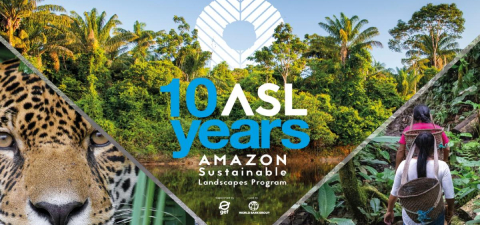 ASL Newsletter - August 2025
ASL Newsletter - August 2025

We continue to celebrate our 10-year anniversary with renewed purpose, sharing major updates from the 7th ASL Annual Conference, the Sustainable Finance Workshop in Bolivia, and active national projects across the Amazon. A landmark announcement from Ecuador established the country’s largest Amazonian connectivity corridor, supported by ASL’s work, and we feature a powerful article from Colombia’s Ministry of Environment on integrating environmental criteria into road planning.
Click here to read the newsletter
 Feature Story: Protecting Jaguars' Role in Ecosystem Balance in the Amazon
Feature Story: Protecting Jaguars' Role in Ecosystem Balance in the Amazon

The Amazon is home to approximately 90% of the world’s jaguar population, who play a crucial role in maintaining the ecological balance of the Amazon rainforest by regulating prey populations. Conservation efforts using technology and ecological corridors are vital to protecting jaguars and their habitats.
Click here to read the story
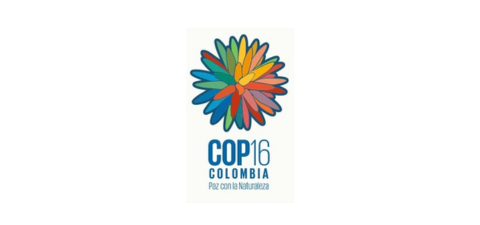 ASL at COP16
ASL at COP16

On Thursday, October 24, the ASL will host a side event at the 16th Conference of the Parties to the Convention on Biological Diversity (COP 16) in Cali, Colombia. The event will focus on the Program’s 10 years, sharing key results and lessons learned. It will provide updates on the program’s achievements over the past decade and its contributions to biodiversity conservation.
Click here for more details
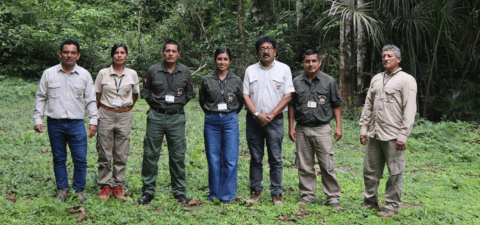 Celebrating Amazon Rangers
Celebrating Amazon Rangers

In honor of World Ranger Day, we celebrate the incredible rangers who dedicate their lives to protecting the Amazon Rainforest. Join us as we spotlight extraordinary rangers from the Amazon region working with ASL projects in this Storymap.
Click here to access the StoryMap
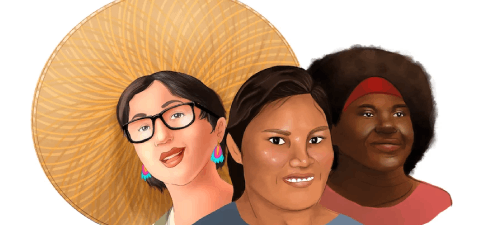 'Guardianas del Futuro' (Guardians of the Future) Podcast
'Guardianas del Futuro' (Guardians of the Future) Podcast

Colombian media outlet "La Oreja Roja" visited the Colombian Amazon to meet the female leaders fighting for environmental conservation and tackling issues like illegal mining and deforestation. These women are part of the ASL and its Heart of the Amazon project.
Click here to listen to the episodes (in Spanish)
 2023 Annual Report
2023 Annual Report

This report offers an overview of our program, highlighting the achievements, challenges, and lessons from the national projects. These successes have been made possible through fruitful collaborations with governments, project teams, civil society, donors, and other organizations working in the Amazon region. Additionally, the report includes information on the third phase (ASL3) of the program.
Access the report in English, Spanish and Portuguese
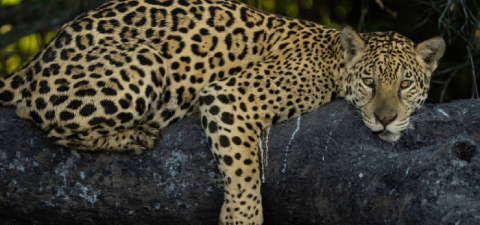 Feature Story: Preserving the Treasures of the Amazon
Feature Story: Preserving the Treasures of the Amazon

The Amazon region is home to 10% of the world's known species, and there is still much to discover. Many Amazonian species are threatened by habitat loss, environmental crimes such as poaching and other human activities.
The Amazon Sustainable Landscapes Program has projects in seven countries in the region, working with communities to address these issues.
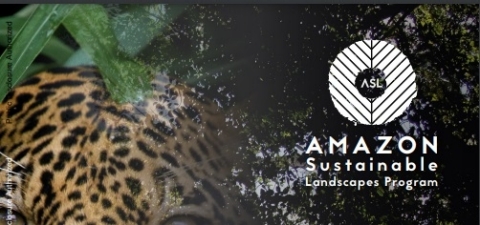 International Funding for Amazon Conservation and Sustainable Management: An analysis of grant funding from 2013 to 2022
International Funding for Amazon Conservation and Sustainable Management: An analysis of grant funding from 2013 to 2022

This analysis provides important data on funding for conservation and sustainable development in the Amazon, especially given its focus on the period in which the COVID-19 pandemic occurred. This information can be used to inform and promote dialogue leading to enhanced donor coordination efforts. Key recommendations include updating these data regularly, enhancing the analysis with impact evaluations, using the data to establish synergies among donors and recipients, and increasing funding that goes directly to indigenous and local communities. The study makes the updated funding data from 2013-2022 available in an interactive open access data visualization dashboard, which was created by the World Bank during the previous study.
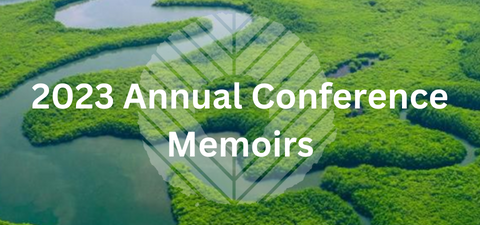 2023 Annual Conference Memoirs - Tarapoto, Peru
2023 Annual Conference Memoirs - Tarapoto, Peru

Explore the highlights of the Sixth Annual ASL Conference. Held in Tarapoto, Peru from November 13-17, 2023 the conference was a testament to the power of collective action. Explore the exchange of knowledge, capacity building, and regional cooperation that took place during the event.
Read the memoirs in English - Spanish - Portuguese
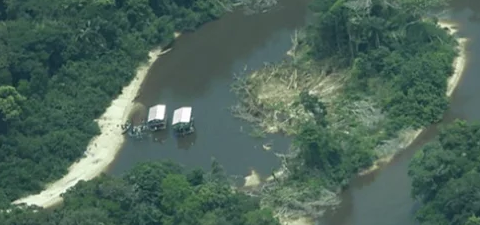 Feature Story: Regional Collaboration to Address the Impacts of Mercury Pollution in the Amazon
Feature Story: Regional Collaboration to Address the Impacts of Mercury Pollution in the Amazon

Illegal mining in the Amazon region is causing widespread mercury contamination, with far-reaching consequences for ecosystems, biodiversity, and the health of local communities. This feature story highlights the development of a series of activities to strengthen regional collaboration in the fight against the impacts of gold mining and mercury pollution.
Read the feature story in English, Spanish and Portuguese
PREVIOUS ASL EVENTS
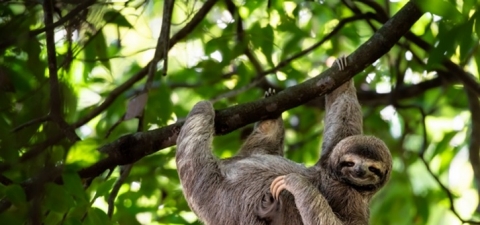 Webinar: Presentation of the Rapid Assessment of Biodiversity and Ecosystem Services in the Amazon Basin/Region | May 14, 2024
Webinar: Presentation of the Rapid Assessment of Biodiversity and Ecosystem Services in the Amazon Basin/Region | May 14, 2024

The Amazon Cooperation Treaty Organization (ACTO) is an intergovernmental organization, conformed by Bolivia, Brazil, Colombia, Ecuador, Guyana, Peru, Suriname and Venezuela, which has as one of its fundamental areas of work the management of the relevant and unique biological diversity of the megadiverse ecosystem of the Amazon. In this context, the 8 Member Countries unanimously approved in 2021 the "Biodiversity Program for the Amazon Basin/Region" in order to improve the management of biological diversity and the protection of the traditional knowledge of the indigenous peoples and other communities of the Amazon.
As a first action of the Program to better understand the status and trends of biodiversity and ecosystem services in the Amazon Region, as well as their interrelationships, opportunities and effectiveness of responses to current threats, ACTO coordinated a group of 118 experts from Amazonian countries to develop during the years 2021-2023, a "Rapid Assessment of Biodiversity and Ecosystem Services in the Amazon Basin/Region", following the methodology and conceptual framework of the Intergovernmental Science-Policy Platform on Biodiversity and Ecosystem Services - IPBES. The Amazon Sustainable Landscapes Program (ASL) in its mission to promote the dialogue of knowledge and best practices has created the opportunity to disseminate this important work.
More information about the webinar
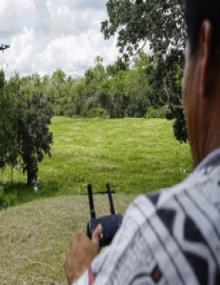 Webinar: Putting geospatial data into action: Indigenous Peoples' community-led rainforest monitoring in the Amazon region | April 2, 2024
Webinar: Putting geospatial data into action: Indigenous Peoples' community-led rainforest monitoring in the Amazon region | April 2, 2024

Recording in English - Portuguese - Spanish
Presentations here
Globally, Indigenous Peoples and local community-managed lands play a pivotal role in mitigating climate change and preserving the planet's ecological balance, accounting for at least 293,061 million metric tons of carbon, equivalent to 17% of the total carbon stored in the world's forestlands, and roughly 16 percent of intact forest landscapes, serving as critical biodiversity havens. The Amazon region alone is home to around 500 different Indigenous groups, whose territories cover almost 29 percent of one of the most biodiverse biomes in the world, hosting more than 10 percent of the planet's biodiversity. Management of these indigenous territories has been shown to result in lower deforestation and degradation rates, conservation of biodiversity, improved livelihoods, food security, and enhancement of their rights across the Amazon.
In this webinar, we explored how new technologies, including geospatial data, directly used by Indigenous Peoples can support effective management of their territories, providing them with accessible, up to date information to monitor threats and preserve their natural resources. Drawing on examples of participatory monitoring efforts from Brazil, Guyana, and Peru, speakers showed how new technologies, including mobile apps, drones, and satellite imagery, are being used to track areas of deforestation and provide compelling evidence to influence policymakers. We discussed how community-led initiatives supported by geospatial data can tackle environmental threats and support the protection of these invaluable territories.
More information about the webinar

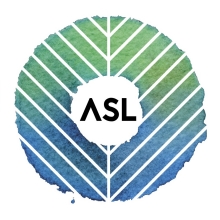





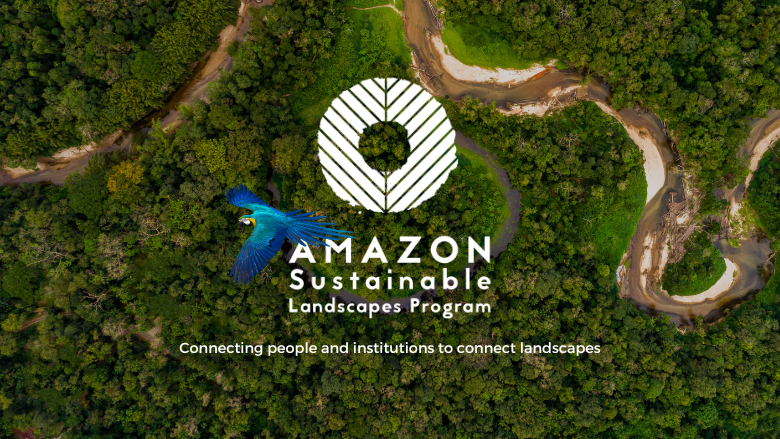
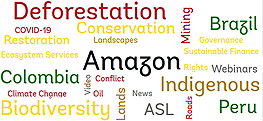
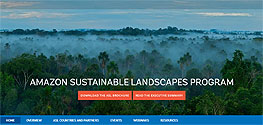



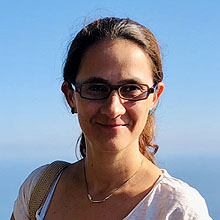

Mail sent to Community Managers, Please access the group once it get approved by Moderator.